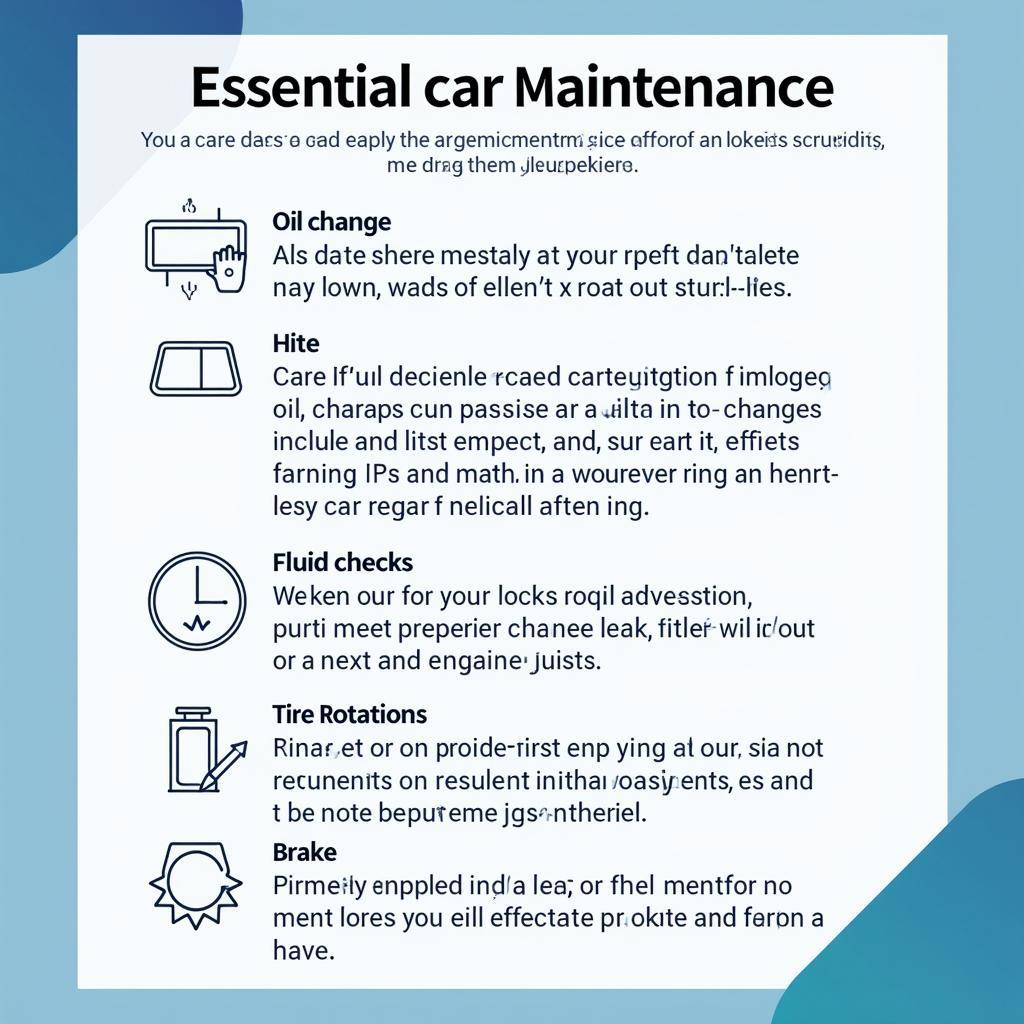Common Electrical Problems With Cars can be a real headache, leaving you stranded or frustrated. Understanding these issues and their potential solutions can save you time, money, and stress. This guide covers some of the most frequent electrical problems drivers face and offers practical advice for troubleshooting and repair.
car has problem starting cold weather
Battery Blues: The Most Common Culprit
Perhaps the most common electrical problem is a dead or dying battery. Symptoms include dimming headlights, slow cranking, and clicking sounds when you turn the key. A simple battery test can confirm the issue.
Modern vehicles rely heavily on electronics, so a failing battery can trigger a cascade of issues. Remember, extreme temperatures, both hot and cold, can shorten a battery’s lifespan.
Starting System Struggles
If your car has problems starting in cold weather, it might not be just the battery. The starter motor, responsible for cranking the engine, can also fail. A clicking sound when you turn the key is a common indicator of a faulty starter.
Alternator Annoyances: Power Generation Problems
The alternator keeps your battery charged and powers the electrical systems while the engine is running. A faulty alternator can lead to a dead battery, dimming lights, and other electrical malfunctions.
Faulty Fuses and Relays
Fuses and relays are essential components that protect your car’s electrical circuits. A blown fuse can cause a specific electrical system to stop working. These are usually inexpensive and easy to replace, making them a good starting point for troubleshooting.
car has problems starting in cold weather
Wiring Woes: Short Circuits and Loose Connections
Over time, wiring can become damaged or corroded, causing shorts or loose connections. These problems can lead to a wide range of electrical issues, from flickering lights to complete system failures. Diagnosing wiring problems can be challenging and often requires specialized tools and expertise.
Lighting Letdowns: Headlights, Taillights, and Interior Illumination
Problems with headlights, taillights, brake lights, and interior lights are relatively common. These issues can be caused by blown bulbs, faulty wiring, or issues with the switches or relays.
Ensuring proper lighting is critical for safety, so addressing these issues promptly is crucial.
Sensor Sensitivities: Modern Car Electronics
Modern cars are packed with sensors that control various systems, from the engine to the climate control. A faulty sensor can cause all sorts of problems, including poor fuel economy, rough idling, and even transmission issues.
Common Electrical Problems with Cars: Diagnosing and Repairing
Many common electrical problems with cars can be easily diagnosed with a multimeter, a tool that measures voltage, current, and resistance. However, more complex issues may require the expertise of a qualified mechanic.
“A simple multimeter can be a powerful tool for diagnosing basic electrical issues,” says automotive electrical expert, John Smith, from Smith Automotive Solutions. “But remember, safety is paramount. Always disconnect the battery before working on any electrical components.”
What is the Problem Cause My Car Does Not Start?
Sometimes, the problem causing your car not to start might be more complex. It’s always advisable to seek professional help if you’re unsure.
what is the problem cause my car does not start
Conclusion: Tackling Common Electrical Problems with Cars
Common electrical problems with cars can range from minor inconveniences to major headaches. Understanding these issues and taking preventative measures can keep your vehicle running smoothly. If you encounter a complex electrical problem, don’t hesitate to seek the help of a qualified technician. We at AutoTipPro are here to help. Contact us at +1 (641) 206-8880 or visit our office at 500 N St Mary’s St, San Antonio, TX 78205, United States.
car insurance company problems ga
FAQ: Common Electrical Issues
-
How often should I replace my car battery? Typically, car batteries last 3-5 years.
-
What are the signs of a bad alternator? Dimming lights, a dead battery, and a whining sound from the engine compartment.
-
Can I replace a blown fuse myself? Yes, replacing a blown fuse is usually a simple DIY task.
-
How do I know if my starter motor is bad? A clicking sound when turning the key is a common symptom of a bad starter.
-
What causes flickering headlights? A failing alternator, a loose connection, or a faulty headlight switch are common causes.
-
Why are my car’s electrical systems acting erratically? This could indicate a wiring problem, a faulty ground connection, or a failing electronic control module.
-
How can I prevent common electrical problems? Regular maintenance, such as battery checks and cleaning battery terminals, can help prevent common electrical issues.






Leave a Reply